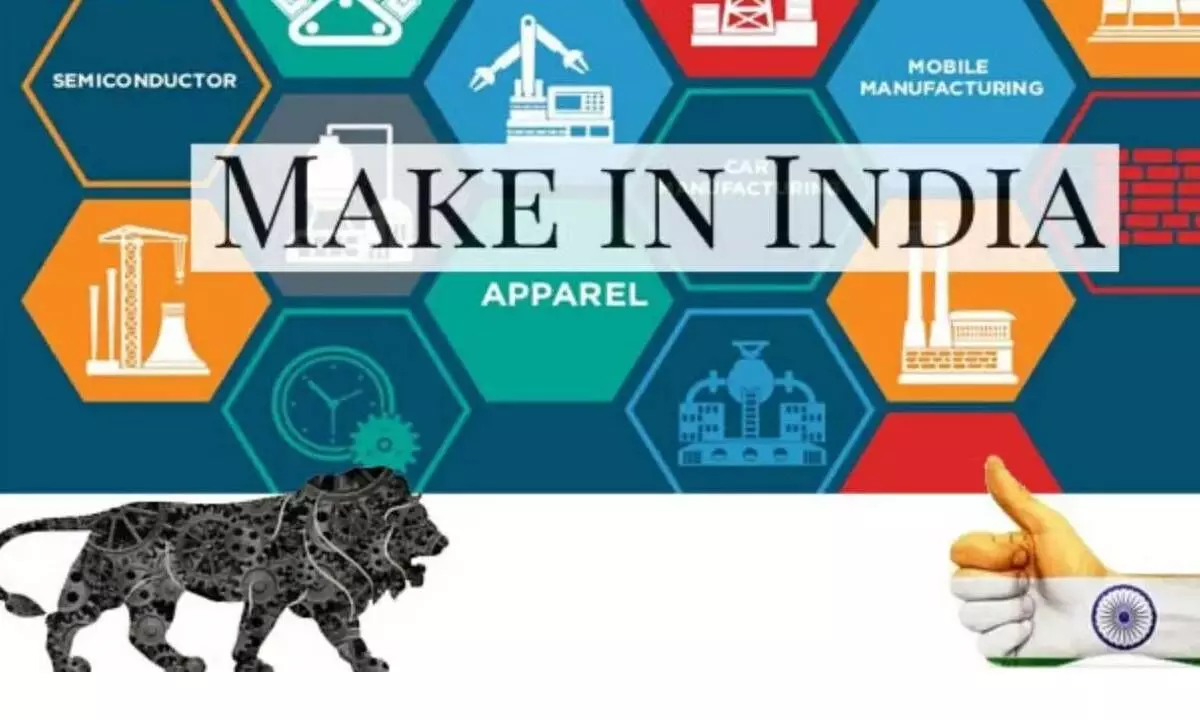Focus on ‘Make in India’ will help shed the ‘assembler’ tag
image for illustrative purpose

India’s dreams of emerging as a global manufacturing hub are getting wings now. Foxconn has announced that it will invest more than $600 million in India towards a phone manufacturing project and separately a semiconductor equipment facility. Foxconn, among global leaders in contract electronics manufacturing, is best known as the main assembler of Apple’s iPhones. After opening its flagship store in the country, technology giant Apple is likely to triple its investment in India. After getting more Apple iPhones manufactured from India through its contract manufacturer, the company is looking at getting its iPads and AirPods manufactured here through its contract manufacturer. Under the 'Make in India' initiative, mobile phone shipments crossed the two-billion cumulative units mark during 2014-2022, registering a 23 per cent compound annual growth rate (CAGR). Notably, the government has introduced the Production Linked Incentive (PLI) scheme for 14 sectors, including mobile phone manufacturing. Apparently, these initiatives are now fructifying to a significant extent and the future seems bright.
According to the India Cellular and Electronics Association (ICEA), India is set to cross Rs 1,20,000 crore in mobile exports in the current fiscal year. The Union government is focused on making India a semiconductor hub, towards which it has announced a semiconductor PLI scheme. This is despite Foxconn withdrawing from a $19.5 billion semiconductor joint venture with Indian mining conglomerate Vedanta. However, both companies indicated that they remain committed to their semiconductor investment plans in India. Against this backdrop, the decision to impose import restrictions on laptops, tablets and personal computers is seen as a move to encourage the ‘Make in India’ initiative and make the country self-reliant in their manufacture. This regulation now requires entities to obtain a ‘Valid Licence for Restricted Imports’ for bringing such devices from abroad for sale within the country. With critics raising objections, the imposition decision has been deferred. One should not be surprised or shocked if we see much more such import restrictions in the days ahead. Many governments are trying to reduce electronics imports to the country and make India self-reliant in this space. With production linked incentive schemes, they are becoming realities in some segments.
However, the fact remains that, by and large, India remains an assembler of equipment, as of now. It means that most of the critical elements of computers, mobile phones or laptops are not manufactured in India, which only assembles what come from abroad. Though this makes for a sound first step, the country has to move upwards in the value chain at a faster pace so as to establish its own identity and position. India with its engineering talent, availability of cheap labour and raw materials, remains best-placed to emerge as a global manufacturing hub. As China plus one as a theme gets momentum, global enterprises are increasingly looking at India, as an effective alternative. The country should cash in on the opportunity and help setting up big manufacturing facilities that make critical electronics components. This way, the country can provide gainful employment to its huge young population.

